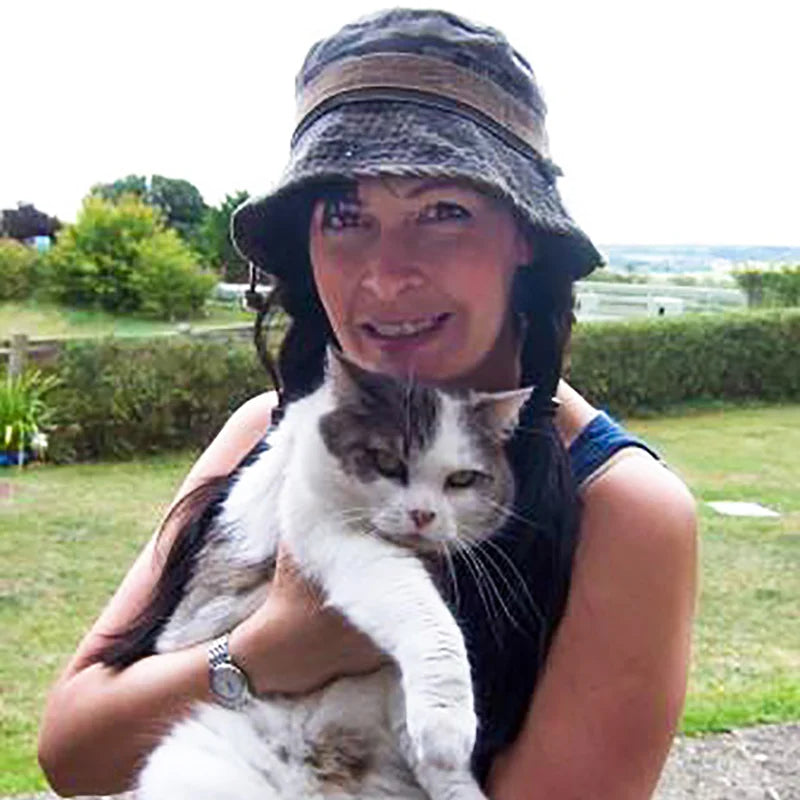
The better we understand our pets, the better our relationships with them. By delving into the psychology behind their behavior, reactions, and natural instincts you can ensure both your environment and your pet’s is harmonious and happy.
Learning what’s normal and what’s behind unusual or undesirable behavior really helps to get to grips with it. In this course, you’ll also discover how to treat habits and reactions that are not good for your pet or for you.
Once you understand what’s normal for an animal and why pets behave as they do, you’ll find it easier to find a solution. It is possible to resolve or vastly reduce the most disruptive behavior. Don’t waste another day with an unhappy pet situation – start this course today and get back to that warm, fuzzy, in-love-with-my-pet feeling.
Requirements
International Open Academy courses are designed for anyone with an interest in learning. No formal qualifications are required to study with us. Our courses are suitable if you want to learn new skills, start a new career, or if you’re already working in a particular industry and wish to upgrade your talents and enhance your resume.
Module 1: Domestication - How Pets Came In From The Cold
- History to human engagement with pets
- Breeding
- Anthropomorphism (transferring human emotions & expectations to pets)
- Choosing your pet
Module 2: Normal Dog Behavior - When Your Pet Is Being True To His Nature
- Socialization
- How older dogs change
- Understanding puppy behavior
- Feeding time
- Habits like licking, digging & jumping
Module 3: If Dogs Could Talk
- Dogs’ body language
- How they greet humans and other dogs
- How to recognize what signals play
- Different types of aggressive behavior
- The hidden language in dogs’ smells/urine/feces/sniffing
- Translating vocal language
Module 4: Calm The Pack – Fear, Aggression And Anxiety
- Aggression: territorial, protective, predatory, sexual, fearful and more
- Anxiety due to separation
- Fear
Module 5: How Well Do You Know Me? The Colorful World Of Dogs’ Antics Explained
- Rolling over and rolling in poo!
- How dogs feel about your stroking, patting,
- Tummy tickles & ear scratching
- Circling and chasing tail
- Tail between legs
- Muzzle grabbing
- Eating grass
Module 6: Lose Your Mind To Understand Your Dog’s
- Marking in inappropriate places
- Urination due to excitement and submission
- Unusual levels of barking
- Soiling your home
Module 7: What Is Normal Behavior For A Cat?
- Eating rituals - how and why they differ from dogs
- Important early lessons for kittens
- Understanding how older cats change
- Kneading
- Burying feces
Module 8: A Cat’s The Only Cat Who Knows Where It’s At
- Kitties and litter trays
- Some of the top reasons cats do not use a litter tray
- Understanding cat body language
Module 9: When You’ve Had It With Your Cat – Psychiatric Challenges
- The ins and outs of litter trays - what works and doesn’t
- Why they soil where you don’t want them to
- How to deal with challenges
- Jumping up
- Shouting
Module 10: Cat On A Griddle
- Likely reasons for aggression and how to recognize different kinds
- Desensitizing
- Separation anxiety
- The impact of environmental stress
Module 11: Understanding Rabbits
- Body language
- Rabbit noises
- Normal behavior and what signals a problem
- Chewing
- Marking
Who is this course for?
- Anyone who is curious about animal behavior
- Pet parents and professionals seeking creative solutions to behavioral issues
- Anyone who lives with or works with animals and wants to find better ways to communicate with them
- Animal lovers setting up or running their own business will impress would-be clients with this course as it shows they’re dedicated to animals and their welfare
You will be required to complete each lesson in full, and answer exams at the end of each course module. If your pass rate exceeds 55% on each exam then you are eligible to access a certificate of achievement or other accreditation options to recognize your achievement.
Most of our courses will earn you credits through Continuing Education (CE) / Continuing Professional Development (CPD). CE/CPD points are accepted and recognized by professional member bodies and academic institutions across the US and internationally.
All courses are accredited by the International Council for Online Educational Standards (www.icoes.org) and the The International Association of Private Career Colleges (www.iapcc.org). When successfully completing a course, students can choose to purchase an ICOES certificate that recognizes the achievement, from this third-party institution.

Dr Pippa Elliott, BVMS MRCVS
Expertise: Animal Health and Wellness, Veterinary
Dr Pippa Elliott, BVMS MRCVS, is a veterinarian with 27 years' experience in companion animal practice. As a child, Pippa was pony-mad and can't remember a time when she didn't want to be a vet. She started volunteering at her local clinic at the age of 14, and it was a dream come true when she was accepted for vet school. She graduated from the University of Glasgow, UK. Her knowledge and dedication has helped transform the lives of thousands of students and pets from around the world.
The better we understand our pets, the better our relationships with them. By delving into the psychology behind their behavior, reactions, and natural instincts you can ensure both your environment and your pet’s is harmonious and happy.
Learning what’s normal and what’s behind unusual or undesirable behavior really helps to get to grips with it. In this course, you’ll also discover how to treat habits and reactions that are not good for your pet or for you.
Once you understand what’s normal for an animal and why pets behave as they do, you’ll find it easier to find a solution. It is possible to resolve or vastly reduce the most disruptive behavior. Don’t waste another day with an unhappy pet situation – start this course today and get back to that warm, fuzzy, in-love-with-my-pet feeling.
Requirements
International Open Academy courses are designed for anyone with an interest in learning. No formal qualifications are required to study with us. Our courses are suitable if you want to learn new skills, start a new career, or if you’re already working in a particular industry and wish to upgrade your talents and enhance your resume.
Module 1: Domestication - How Pets Came In From The Cold
- History to human engagement with pets
- Breeding
- Anthropomorphism (transferring human emotions & expectations to pets)
- Choosing your pet
Module 2: Normal Dog Behavior - When Your Pet Is Being True To His Nature
- Socialization
- How older dogs change
- Understanding puppy behavior
- Feeding time
- Habits like licking, digging & jumping
Module 3: If Dogs Could Talk
- Dogs’ body language
- How they greet humans and other dogs
- How to recognize what signals play
- Different types of aggressive behavior
- The hidden language in dogs’ smells/urine/feces/sniffing
- Translating vocal language
Module 4: Calm The Pack – Fear, Aggression And Anxiety
- Aggression: territorial, protective, predatory, sexual, fearful and more
- Anxiety due to separation
- Fear
Module 5: How Well Do You Know Me? The Colorful World Of Dogs’ Antics Explained
- Rolling over and rolling in poo!
- How dogs feel about your stroking, patting,
- Tummy tickles & ear scratching
- Circling and chasing tail
- Tail between legs
- Muzzle grabbing
- Eating grass
Module 6: Lose Your Mind To Understand Your Dog’s
- Marking in inappropriate places
- Urination due to excitement and submission
- Unusual levels of barking
- Soiling your home
Module 7: What Is Normal Behavior For A Cat?
- Eating rituals - how and why they differ from dogs
- Important early lessons for kittens
- Understanding how older cats change
- Kneading
- Burying feces
Module 8: A Cat’s The Only Cat Who Knows Where It’s At
- Kitties and litter trays
- Some of the top reasons cats do not use a litter tray
- Understanding cat body language
Module 9: When You’ve Had It With Your Cat – Psychiatric Challenges
- The ins and outs of litter trays - what works and doesn’t
- Why they soil where you don’t want them to
- How to deal with challenges
- Jumping up
- Shouting
Module 10: Cat On A Griddle
- Likely reasons for aggression and how to recognize different kinds
- Desensitizing
- Separation anxiety
- The impact of environmental stress
Module 11: Understanding Rabbits
- Body language
- Rabbit noises
- Normal behavior and what signals a problem
- Chewing
- Marking
Who is this course for?
- Anyone who is curious about animal behavior
- Pet parents and professionals seeking creative solutions to behavioral issues
- Anyone who lives with or works with animals and wants to find better ways to communicate with them
- Animal lovers setting up or running their own business will impress would-be clients with this course as it shows they’re dedicated to animals and their welfare

Dr Pippa Elliott, BVMS MRCVS
Expertise: Animal Health and Wellness, Veterinary
Dr Pippa Elliott, BVMS MRCVS, is a veterinarian with 27 years' experience in companion animal practice. As a child, Pippa was pony-mad and can't remember a time when she didn't want to be a vet. She started volunteering at her local clinic at the age of 14, and it was a dream come true when she was accepted for vet school. She graduated from the University of Glasgow, UK. Her knowledge and dedication has helped transform the lives of thousands of students and pets from around the world.



